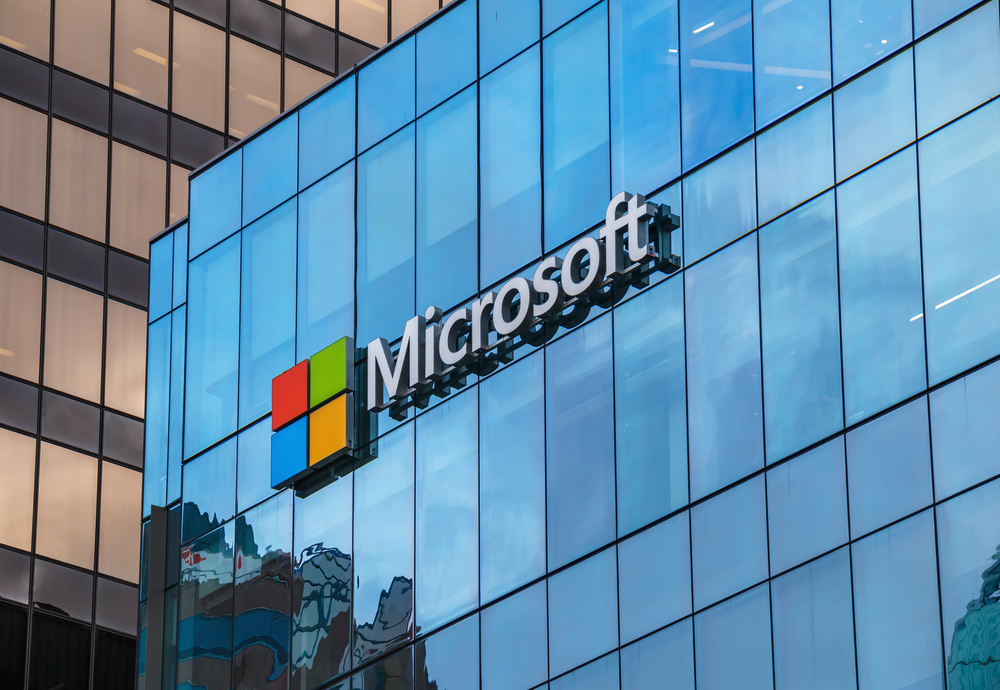Business and Economy
Microsoft plows ahead in cloud business growth
Microsoft on Wednesday gave another solid quarterly report card to Wall Street, as it plows ahead in selling its cloud computing services to big businesses and the government.
The company reported fiscal second-quarter profit of $11.6 billion, up 36% from the same period last year.
Net income of $1.51 per share beat Wall Street expectations.
The software maker posted revenue of $36.9 billion in the October-December period, up 14% from last year and also beating forecasts.
Analysts polled by FactSet expected Microsoft to earn $1.32 per share on revenue of $35.7 billion for the October-December quarter. They are predicting a forecast of $1.24 in earnings per share on revenue of $34.1 billion for the January-March quarter.
Goldman Sachs analyst Heather Bellini said in a note to investors Wednesday that Microsoft’s Azure cloud computing business has been growing faster than the broader cloud market. Azure’s quarterly revenue grew 62% per cent from the same time last year.
Bellini said the company’s subscription-based Office 365 workplace software products also remain “front and centre” as businesses look to transform their digital operations.
She said price increases that began in October 2018 are continuing to drive revenue, as are Microsoft’s moves to phase out older products such as Windows 7, which came out in 2009. Microsoft stopped providing free security updates for the legacy operating system earlier this month, forcing users to upgrade to Windows 10 if they don’t want to be vulnerable to malware and hacking.
Microsoft’s efforts to catch up to No. 1 cloud provider Amazon got a big boost in October when the U.S. Department of Defence awarded Microsoft a $10 billion contract to supply the U.S. military with cloud services for the next decade.
Amazon is protesting Microsoft’s award, saying President Donald Trump improperly influenced the bidding process, and asked the U.S. Court of Federal Claims this month to halt any substantive work while its lawsuit proceeds. The Pentagon wants Microsoft to start sooner, arguing that the computing project known as JEDI is urgently needed for national security.
The project, formally called the Joint Enterprise Defence Infrastructure plan, would store and process vast amounts of classified data.
Mizuho analyst Gregg Moskowitz said in a note that the JEDI cloud contract was a game-changer for Microsoft that goes beyond its likely $10 billion in revenue over the next decade. He said it could also serve as a template leading to broader adoption by other government agencies and business customers.
Microsoft’s Surface hardware business grew by 6% from the same time last year after the company launched new laptops and tablets in the fall. But another consumer business, the Xbox gaming system, experienced a 11% revenue decline as Microsoft’s gaming division prepares to release a new console later this year.
Revenue from the company’s professional networking service, LinkedIn, grew by 24%.
Microsoft CEO Satya Nadella celebrated the strong profit and revenue in a statement Wednesday, while also calling attention to the company’s work “to ensure the technology we build is inclusive, trusted and creates a more sustainable world.”
Nadella pledged earlier this month that by 2030 the company will be removing more carbon from the environment than it emits. To get there, the company said it plans to cut emissions from its business and supply chain, while helping to fund the development of new technology to remove carbon from the air.
Shares in Microsoft Corp., which is based in Redmond, Washington, rose $5.54, or 3.3%, to $173.58 in after-hours trading following the release of the earnings report.
———
This story has been updated to correct the three-month period reported. It was Microsoft’s fiscal second quarter, not first quarter.






















